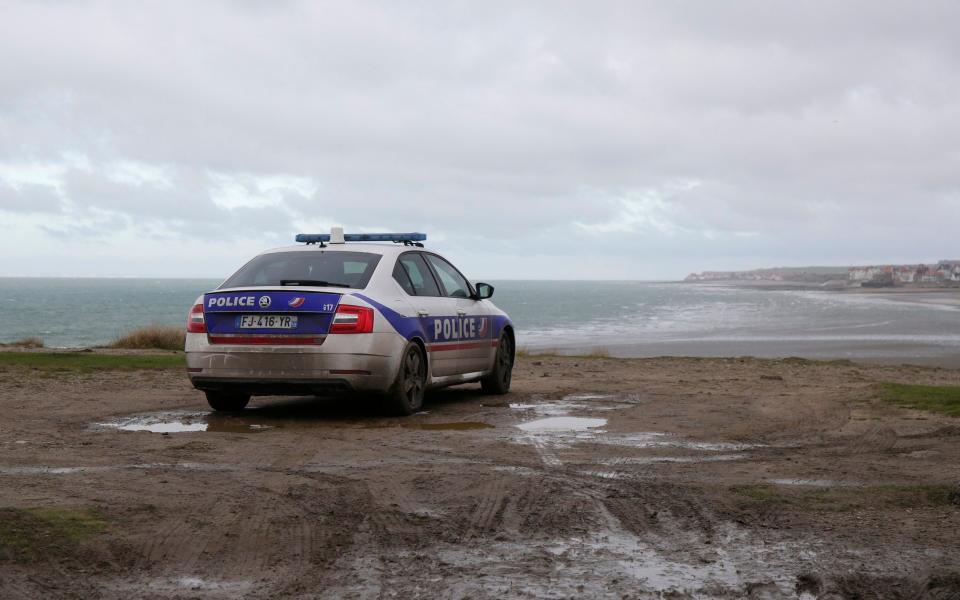People smuggling gangs are 'resolutely professional', French police warn ahead of Calais migrant summit

People smuggling has become “resolutely professionalised”, the French police have warned ahead of a key summit in Calais to discuss ways to stop migrants crossing the Channel.
Ministers from France, Germany, Belgium and the Netherlands, as well as the European Commission, will meet in the northern port town of Calais on Sunday afternoon to discuss how to tackle people-smuggling operations that provide boats to people seeking to cross into Britain.
The talks were called following the deaths of 27 people last Wednesday after the makeshift dinghy carrying them across the narrow stretch of water capsized in freezing conditions.
British ministers were uninvited from the gathering following a diplomatic spat between Boris Johnson and Emmanuel Macron, after the Prime Minister shared a letter to his French counterpart on social media. The Government announced on Sunday that it would hold its own talks on the crisis later this week.
Paris is seeking to secure further international cooperation to tackle people smuggling gangs, which it believes are operating in nearby countries to facilitate the treacherous crossings.
Watch: Migrant crossings: UK must make itself 'less economically attractive' to those making journey, French interior minister says
“The organisation of these crossings has become resolutely professionalised… the fight against these international structures makes cooperation between countries concerned essential,” according to a note by the French border police, reported by Le Journal du Dimanche.
The document, entitled “Migrant smuggling to the United Kingdom – 10 months 2021”, sets out that some 35,224 migrants have tried to cross in small boats to Britain so far this year, compared to some 2,468 over the same period in 2019.
French officials warned of “structured Iraqi-Kurdish groups that organise themselves in a hierarchical and compartmentalised way” to facilitate the crossings.
A mixture of Covid reducing cross-Channel traffic and separate crackdowns on migrants hiding in lorries has driven up the number of people attempting to enter Britain via small boats, the note added.
“2021 records an impressive increase in the number of events observed (+40 per cent) and even more in the number of migrants involved (+160 per cent),” it said.
The high success rate of these boats has created a “magnetic effect”, helping gangs lure migrants to Calais with the promise of onward travel to Britain. Local police sources say many of the migrants are offered “free passage” in exchange for “agreeing to work for these networks”.
Boris Johnson 'not serious' about crisis
The mounting migration crisis has driven another diplomatic wedge between London and Paris, following months of cross-Channel spats over Brexit, fishing rights and defence contracts.
Within 48 hours of the migrant deaths, Mr Macron, the French President, accused Mr Johnson over being “not serious”. Paris feels the Prime Minister has tried to defect blame onto France.
Aides close to Gerald Darmanin, France’s interior minister, who uninvited Priti Patel, the Home Secretary, from the meeting, have branded the Government’s actions “unacceptable”.
It was claimed by the French government that the Prime Minister had tweeted his letter, calling for more action to tackle migrant boat crossings, before Mr Macron had received the memo.
Mr Darmanin will work on “improving operational cooperation in the fight against people-smuggling because there are international networks which operate in different European countries,” according to an aide, discussing the minister’s meeting with EU counterparts.
French border officials believe the people smuggling gangs are operating out of Belgium, Germany and the Netherlands.
Watch: Channel crossings: UK-France relations 'strong' despite row, minister says
It has been claimed that boats, which can transport as many as 60 migrants, are ordered to Germany, where they are stored before being taken by mules to the French coast. Other equipment, such as life jackets and petrol cans, are procured from elsewhere in Europe.
Many of the migrants are encouraged by criminal enterprises to travel to the Calais region via Belgium to avoid detection by the local authorities.
In a call for joint action, Ms Patel used a newspaper article on Sunday to urge France back to the negotiating table with Britain to devise solutions to end the crisis.
"There is still so much more we can do and I am sorry not to be at a meeting with European ministerial counterparts today to discuss this pressing issue," she wrote.
"We need to be creative about finding new solutions that will have the maximum possible impact, which is why the prime minister and I stand ready to discuss proposals with our French counterparts at any time.
"And I know from my discussions with my European partners in recent days and weeks that there is more that can be done. Together, we can break up the people-smuggling gangs and save lives – but we must act now."

 Yahoo News
Yahoo News 